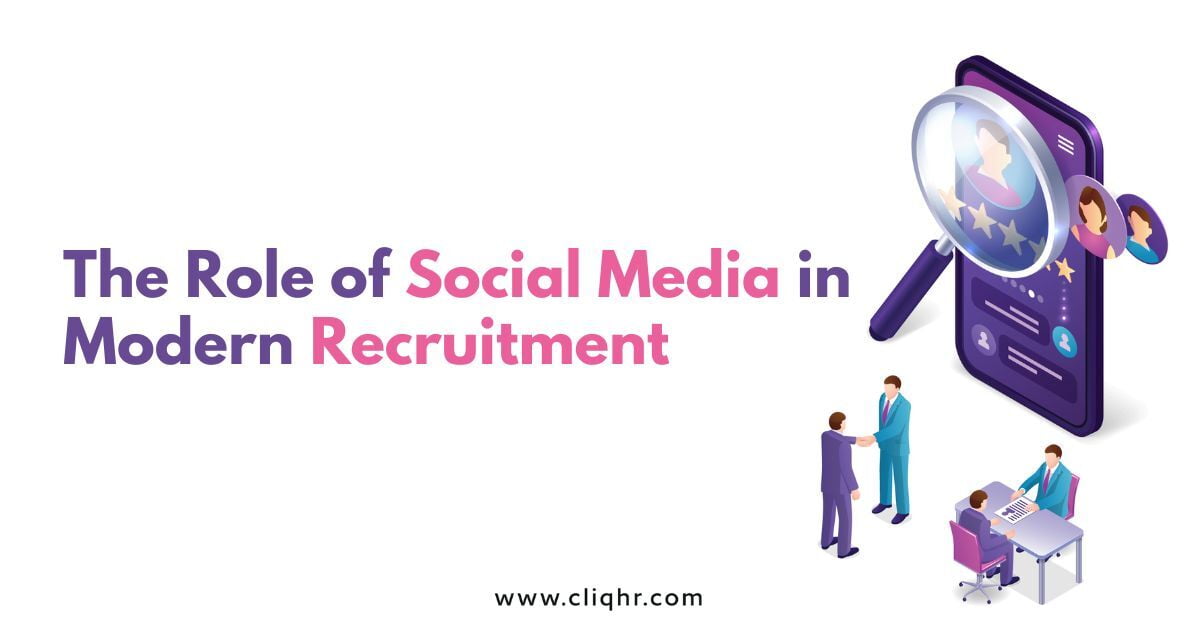
In the digital age, the recruitment landscape has undergone a profound transformation, with technology playing a pivotal role in reshaping how organizations attract, engage, and hire top talent. Among the technological advancements, social media has emerged as a dynamic and game-changing tool that has revolutionized the way recruitment is conducted. With its unparalleled reach, interactivity, and ability to showcase organizational culture, social media has become an essential component of modern recruitment strategies.
In this blog, we explore the multifaceted role of social media in the recruitment process, its benefits, and how organizations can leverage its potential to build robust talent pipelines and shape their employer brand.
Bridging the divide: The transformative role of social media in modern recruitment
Expanding reach and visibility
Social media platforms boast billions of active users, presenting an unmatched opportunity for organizations to increase their reach and visibility. By leveraging platforms such as LinkedIn, Facebook, Twitter, and Instagram, recruiters can connect with a vast and diverse audience, extending their outreach beyond traditional methods.
This expansive reach is particularly valuable when targeting passive job seekers who might not actively search for job openings but are open to exploring new opportunities.
Showcasing company culture
In the competitive job market, candidates are not just seeking jobs; they are seeking organizations that align with their values and offer a positive work culture. Social media provides a canvas for organizations to showcase their company culture, values, employee stories, and work environment.
Through posts, videos, and images, organizations can offer a behind-the-scenes glimpse into their workplace, fostering authenticity and helping candidates gauge their compatibility with the organization.
Building a strong employer brand
Employer branding has become a critical aspect of recruitment. Social media platforms enable organizations to shape and reinforce their employer brand by consistently sharing content that highlights their mission, values, employee testimonials, and achievements.
A strong employer brand not only attracts high-quality candidates but also contributes to employee engagement and retention by creating a sense of pride and belonging.
Engaging with passive candidates
Passive candidates, who are currently employed but open to new opportunities, often comprise a pool of untapped talent. Social media allows recruiters to engage with these candidates subtly and non-intrusively.
By sharing valuable industry insights, thought leadership content, and relevant job openings, organizations can pique the interest of passive candidates and encourage them to consider making a move.
Leveraging visual content
Visual content, such as images and videos, resonates strongly with audiences and can convey a lot of information in a short span. Social media platforms are tailor-made for sharing visual content, enabling organizations to create captivating posts that reflect their culture, workspaces, events, and employee interactions.
Visual content not only captures attention but also provides a deeper understanding of what it's like to work within the organization.
Direct interaction with candidates
Social media platforms facilitate direct and real-time interaction between recruiters and candidates. This interaction can take the form of responding to candidate inquiries, addressing concerns, and even conducting preliminary interviews through messaging platforms.
The immediacy and accessibility of social media enhance the candidate experience by providing swift and personalized responses.
Targeted advertising
Social media platforms offer sophisticated targeting options that allow organizations to tailor their recruitment efforts to specific demographics, skills, and interests. This precision targeting ensures that job postings and recruitment content are displayed to the most relevant audience, increasing the chances of attracting qualified candidates.
Insights and analytics
Social media platforms provide robust analytics tools that enable organizations to measure the effectiveness of their recruitment efforts. Metrics such as engagement rates, click-through rates, and follower growth offer insights into which content resonates with the audience and which platforms yield the best results.
These analytics inform recruitment strategies, helping organizations refine their approach for optimal outcomes.
Rapid dissemination of information
When time is of the essence, social media allows organizations to quickly disseminate information about urgent job openings, events, or changes within the organization. This rapid communication ensures that the organization's message reaches a wide audience promptly.
Continuous engagement
Social media facilitates ongoing engagement with potential candidates. Organizations can nurture relationships through regular updates, industry insights, and interactive content, ensuring that candidates remain engaged and interested in future opportunities.
Conclusion
In the dynamic landscape of modern recruitment, social media has emerged as a powerful tool that transcends geographical barriers, enhances engagement, and amplifies an organization's employer brand.
In an era where connection is at the heart of success, harnessing the potential of social media in modern recruitment is a strategic imperative that empowers organizations to forge stronger bonds with candidates and shape their future workforce.
